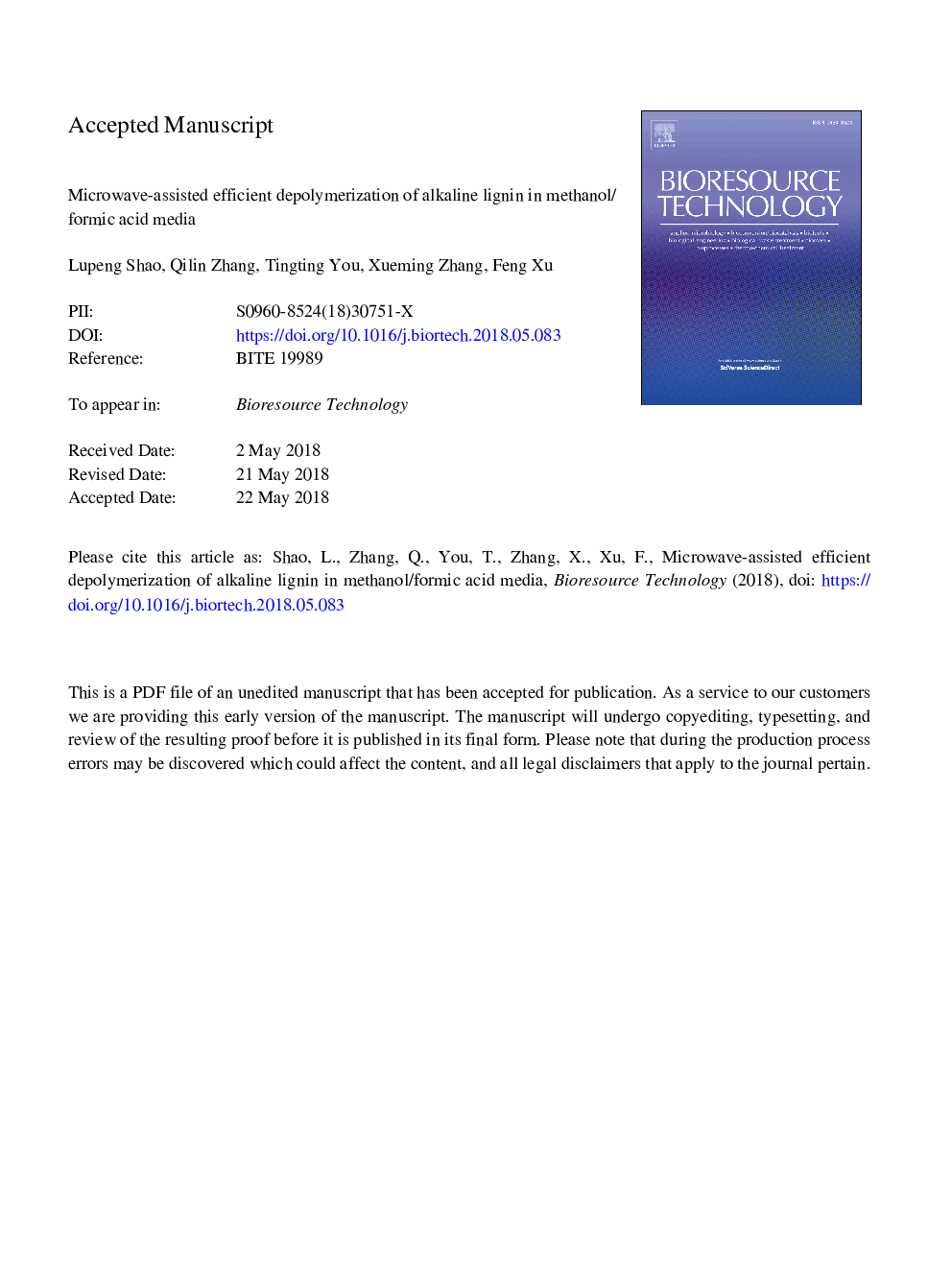| Article ID | Journal | Published Year | Pages | File Type |
|---|---|---|---|---|
| 7066535 | Bioresource Technology | 2018 | 28 Pages |
Abstract
Microwave-assisted degradation of alkaline lignin in methanol/formic acid media was investigated, concerning the effect of formic acid (FA) amount, reaction temperature, and reaction time on lignin depolymerization. The highest bio-oil yield of 72.0â¯wt% including 6.7â¯wt% monomers was achieved at 160â¯Â°C and a FA-to-lignin mass ratio of 4 after a reaction time of 30â¯min. Among the monomers, the yield of 2,3-dihydrobenzofuran was the highest (3.00â¯wt%), followed by p-coumaric acid (1.59â¯wt%). Formic acid acted mainly through acid-catalyzed cleavage of the linkages in lignin. Oligomers in bio-oil were mainly composed of dimers (molecular weight: 253-378) and trimers (molecular weight: 379-510) according to the Matrix-Assisted Laser Desorption/Ionization Time-of-Flight Mass Spectrometry (MALDI-TOF MS) analysis. A possible mechanism about microwave-assisted depolymerization of lignin in methanol/formic acid media was proposed. This study will provide an efficient approach for lignin depolymerization.
Related Topics
Physical Sciences and Engineering
Chemical Engineering
Process Chemistry and Technology
Authors
Lupeng Shao, Qilin Zhang, Tingting You, Xueming Zhang, Feng Xu,
